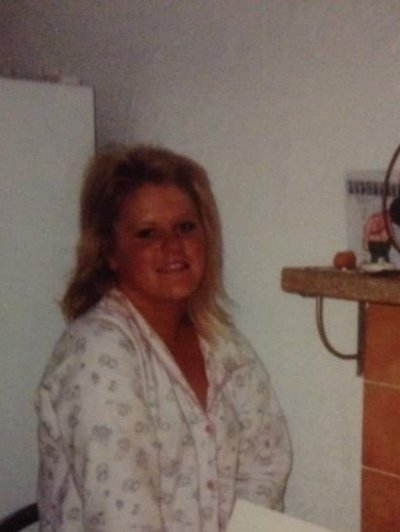Most people, and often women and girls in particular, worry about their appearance from time to time. But for some, body issues can become the center of their existence.
I speak from experience. I struggled with anorexia and bulimia, a binge eating disorder and then depression for more than a decade—between 2003 and 2015.
It's hard to believe looking at me now, because I am a healthy, happy professional woman, but I was once tortured by voices in my head, ones that told me that if I wanted even the smallest chance of amounting to anything, I had to be pretty, skinny and beautiful.
From around the age of 11, I was tormented at school for my appearance. I was an overweight girl with short hair, and I overachieved academically—a prime target for bullies.
I remember having a crush on one of the "popular" boys in my final year of elementary school in the U.K. and writing a letter to him declaring my love. He responded by sharing with the entire class that "the beast" had sent him a love letter. I was heartbroken.
Starting high school, I was still the "fat girl" with chubby cheeks. Even though my hair had grown over summer break, it wasn't long before I was called "the beast" again. And a new nickname even emerged from the boys on the school bus: "the bulldog."
Each summer, I'd try to lose weight in order to return in the fall as a "new person" who the bullies wouldn't bother, but food was also my comfort so I could never do it. I had periods of happiness, but the negative words and actions began chipping away at my self-worth and confidence.


In 2003, I had turned 16 and had the option to leave education, and the school bullies, behind. Instead, I decided to move school to complete the final years of my British high school education, known as A-Levels.
Desperate not wanting to be identified as the "fat girl" at my new school, I put myself on a healthy eating and fitness regimen during the summer break. This time, my determination to be accepted helped me to shift the weight, dropping from a U.S. size 14 to a size 8 in just six weeks. Even though I'd lost the weight far too quickly to be healthy, I felt great.
Walking into the school lounge on that first day, I was greeted with head turns. Girls and boys alike spoke to me and welcomed me as though I was someone they wanted to know.
People's reactions to my new shape became addictive and reinforced my belief that if I ever wanted to be accepted, I'd need to be thin. I continued losing weight, believing that the thinner I got, the more popular I'd become, but it soon took over and I developed what I now know was anorexia and bulimia.
Some days, I'd eat nothing more than a slice of dry toast, a few squares of chocolate and half of the dinner prepared by my parents. Other days, I'd be so hungry that I'd skip school and use my bus fare to buy cheap sugary foods that I could binge on until I was physically sick.
I carried on this way for months, starving, abusing laxatives, making myself sick, exercising relentlessly until one day in 2004, my parents returned home early and found me head over the basin vomiting, surrounded by food wrappers. I'd been found out.


The next six months were filled with visits to the doctors and the hospital, and seeing a psychiatrist, until eventually, just after my 18th birthday in 2005, I completed my treatment. Reality began to set it in that I'd experienced eating disorders after I was being officially diagnosed with anorexia nervosa with bulimic tendencies.
I had seen a nutritionist for a number of weeks during my treatment, and they educated me about the importance of a balanced diet. I was equipped for "normal life", or so I thought.
Over the next year or so I enjoyed food, but as I started to regain the weight I'd lost, the voice that made me question my worth, I'd named it "Anna," returned.
I'd moved out of the family home by the time I had a relapse of anorexia in 2007, so it was easy to control my own food intake without any questions. But soon I fell pregnant and realised that I needed to eat during the pregnancy for the sake of my unborn child.
After giving birth to my son in December 2008, I lost my job and split up with my long-term partner. It was a difficult period, and my anorexia and bulimia reappeared again during those years. Never as badly as when I was younger, but still a constant part of my existence, and it meant I was unable to be happy or body confident.
Then in 2012, for the first time in my life I found myself sinking into severe depression. It came after an extremely stressful period at University, and the depression meant that I didn't want to eat. I started to enjoy the rapid weight loss, but then I'd become so hungry that I'd binge on ridiculous amounts of food every day. I was a mom and I wanted to try and ensure I didn't do further damage to my body, so I never purged.
Towards the end of that year, I had put on weight again. It all became too much, and I started to feel as though I didn't want to live anymore. Scared, I sought professional help, was diagnosed with severe depression and binge eating disorder, referred for immediate weekly therapy sessions and prescribed antidepressants.
After talking to my therapist about my feelings and the horrible experiences I'd had centred around my body weight, I began to see my own worth. I am a good mother with a lot of good personal qualities, and I am worthy of someone's love no matter what size I am.

Over the past five years, I've worked hard to build a better relationship with food. Therapy has taught me to deal with my emotions and take ownership of my doubts and fears. As a result, I began to stop turning to food as a method of coping.
I now run my own PR consultancy, I have a polite and happy eleven-year-old son, and I live with my long-term partner. For the first time in my life, I'm with a partner who encourages me and feels inspired by my journey. I feel valued, worthy and wanted, both within myself and thanks to my partner.
I have down days where I don't like my hair, or I feel bloated, but I've learnt to love myself for who I am, and appreciate the value I add to other people's lives.
I would never say I am, or will be, 100 percent recovered. I think these disorders always stay with you on some level, but I've learnt to distinguish between what's a normal worry, and what might be a sign that things are getting out of control.
I try to eat a balanced diet now, allowing myself a variety of foods including small treats and don't push myself to exercise too much as I know I can become easily obsessed. I've gained a little weight during lockdown, but who hasn't? To me, being able to have that thought at all shows me that I've learned to rationalise my body issues.
Gemma Birbeck is a PR consultant and the company director of Leuly Photography and Public Relations. She lives in the U.K with her partner and her son.
All views expressed in this article are the writer's own.
Uncommon Knowledge
Newsweek is committed to challenging conventional wisdom and finding connections in the search for common ground.
Newsweek is committed to challenging conventional wisdom and finding connections in the search for common ground.





